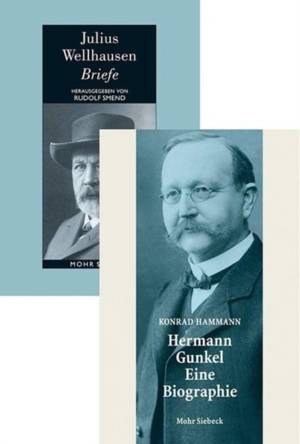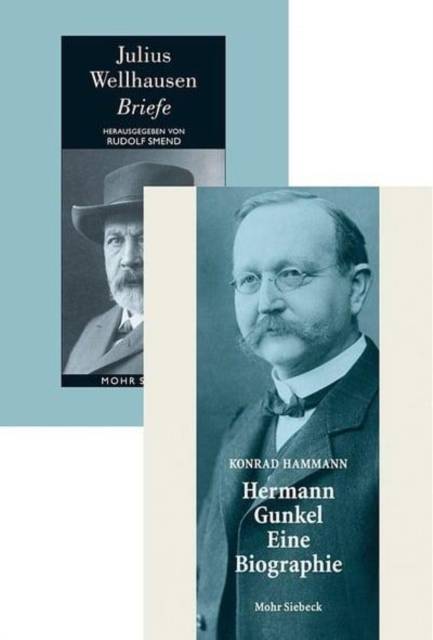
- Retrait gratuit dans votre magasin Club
- 7.000.000 titres dans notre catalogue
- Payer en toute sécurité
- Toujours un magasin près de chez vous
- Retrait gratuit dans votre magasin Club
- 7.000.0000 titres dans notre catalogue
- Payer en toute sécurité
- Toujours un magasin près de chez vous
72,95 €
+ 145 points
Description
English summary: Julius Wellhausen (1844-1918), initially a Professor of Old Testament Studies at the Faculty of Theology in Greifswald and then a Professor of Semitic Studies at the Faculties of Philosophy in Halle, Marburg and Gottingen, formulated the modern view of the history of ancient Israel and was also a pioneer in the fields of pre- and early Islamic Arabia and the New Testament. His works have been given frequent praise for their unique literary qualities, which are also evident here in these letters, almost all of which are being published for the first time. This volume contains more than 1,000 letters; among the recipients are names such as F. Althoff, A. v. Harnack, W. Herrmann, A. Julicher, A. Kuenen, P. de Lagarde, E. Littmann, Th. Mommsen, Th. Noldeke, Ed. Schwartz, A. Schweitzer and W.R. Smith. The subjects dealt with are diverse and transcend the fields of academia. In the generation after Julius Wellhausen, Hermann Gunkel was one of the most important exponents of Protestant biblical studies. As one of the co-founders and main advocates of the history of religions school, he established approaches to the Old as well as the New Testament which were highly innovative from a methodological perspective. Ultimately he set a milestone in research history with each of his major publications. It is no coincidence that his commentary on Genesis and his diverse interpretations of the Psalms became classics of Protestant biblical exegesis in the 20th century. His name is inextricably linked to the examination of biblical texts from the perspective of form criticism. Drawing on previously unexplored archive material, Konrad Hammann shows the extent to which Gunkel's life and work were part of his time and the research discourses of his profession. Now both volumes are available as a set. German description: Julius Wellhausen (1844-1918), zunachst Professor fur Altes Testament an der theologischen Fakultat in Greifswald, danach Professor der Semitistik an den philosophischen Fakultaten in Halle, Marburg und Gottingen, begrundete die moderne Sicht der Geschichte des alten Israel, wirkte bahnbrechend aber auch auf den Gebieten des vor- und fruhislamischen Arabien und des Neuen Testaments. Seine Werke wurden immer wieder wegen ihrer einzigartigen schriftstellerischen Starke geruhmt, die nun auch in seinen hier fast durchweg erstmals veroffentlichten Ausfuhrungen zu Tage tritt. Der Band umfasst mehr als 1000 Briefe; unter den Adressaten befinden sich F. Althoff, A. v. Harnack, W. Herrmann, A. Julicher, A. Kuenen, P. de Lagarde, E. Littmann, Th. Mommsen, Th. Noldeke, Ed. Schwartz, A. Schweitzer und W.R. Smith. Die Themen gehen in ihrer Vielzahl weit uber das Fachliche hinaus. In der Generation nach Julius Wellhausen gehorte Hermann Gunkel zu den bedeutendsten Reprasentanten der evangelischen Bibelwissenschaften. Als einer der Mitbegrunder und Hauptvertreter der Religionsgeschichtlichen Schule etablierte er methodisch hochst innovative Zugange zum Alten wie auch zum Neuen Testament. Letztlich setzte er mit jeder grosseren Publikation einen forschungsgeschichtlichen Markstein. Sein Kommentar zur Genesis und seine diversen Auslegungen der Psalmen avancierten zu Klassikern der protestantischen Bibelexegese im 20. Jahrhundert. Sein Name ist untrennbar verbunden mit der gattungsgeschichtlichen Betrachtung biblischer Texte. Im Ruckgriff auf bislang unerschlossenes Archivmaterial verortet Konrad Hammann das Leben und Werk Gunkels in seiner Zeit und in den Forschungsdiskursen seines Faches. Ab sofort sind beide Bande zusammen als Paket erhaltlich.
Spécifications
Parties prenantes
- Auteur(s) :
- Editeur:
Contenu
- Nombre de pages :
- 1349
- Langue:
- Allemand
Caractéristiques
- EAN:
- 9783161543562
- Date de parution :
- 01-12-15
- Format:
- Livre relié
- Format numérique:
- Genaaid
- Dimensions :
- 170 mm x 240 mm
- Poids :
- 2154 g

Les avis
Nous publions uniquement les avis qui respectent les conditions requises. Consultez nos conditions pour les avis.






